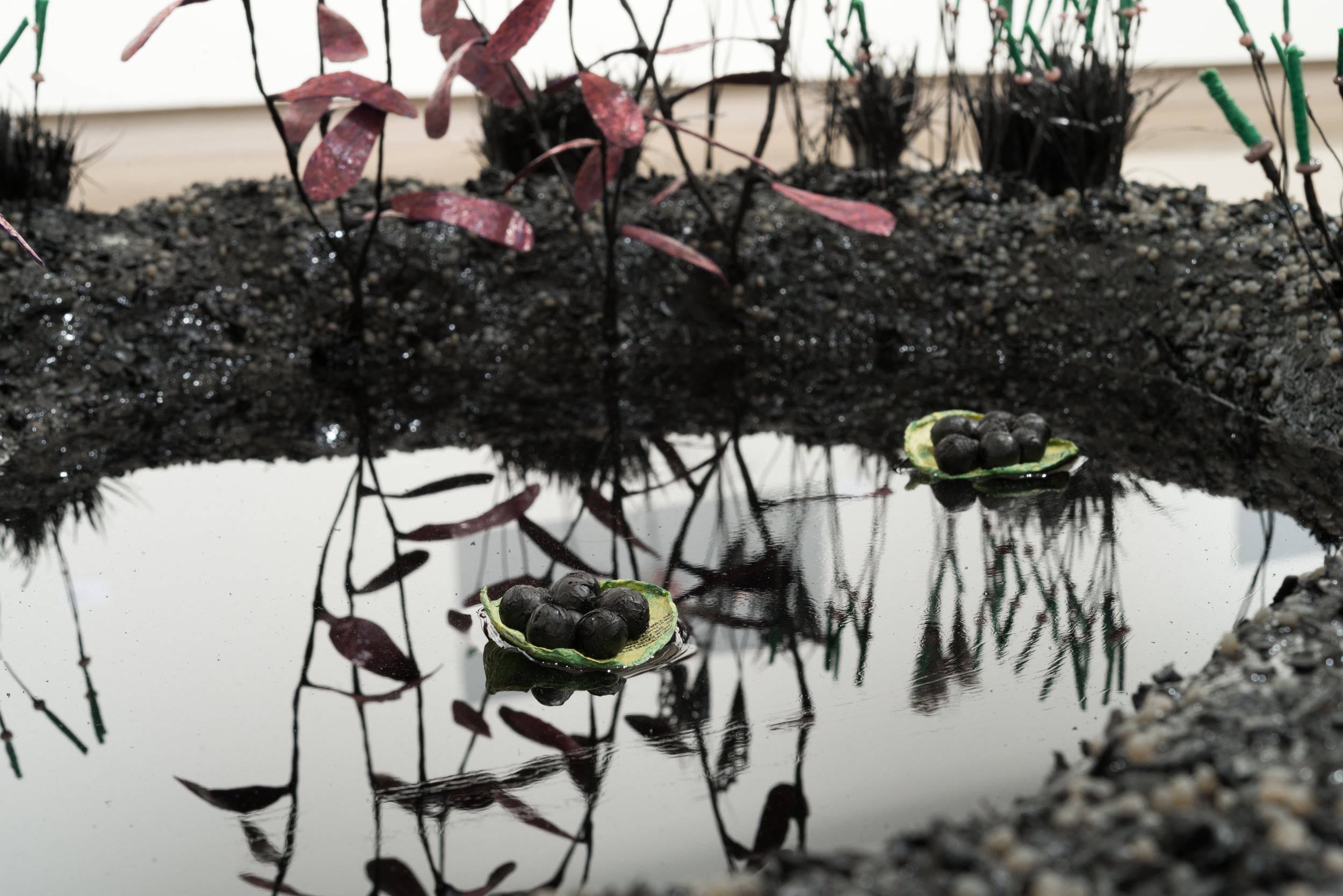Emily Ritter
ecosystem 2
soft plastic, hdpe regrind, wire, and resin. 24 x 12 x 36”. 2018
ecosystem 2 (detail)
soft plastic, hdpe regrind, wire, and resin. 24 x 12 x 36”. 2018
ecosystem 3
soft plastic, hdpe regrind, and wire. 10 x 10 x 10”. 2018
ecosystem 5
soft plastic, hdpe regrind, and wire. 24 x 12 x 24”. 2018
ecosystem 8
soft plastic, hdpe regrind, and wire. 10 x 10 x 10”. 2018
ecosystem 6
soft plastic, hdpe regrind, and wire. 24 x 24 x 36”. 2018
Emily Ritter is an anthropocene artist currently living and working in Kansas. She received her Bachelor of Fine Arts in Studio Art with an emphasis in Printmaking from Wichita State University in 2012. After graduating, Ritter was an Intern-in-Residence at Women’s Studio Workshop in Rosendale, NY. In 2018, She received her Master's of Fine Arts in Studio Art from Arizona State University. Currently, she is the Associate Professor and Director of Visual Arts at Independence Community College in Independence, KS. Ritter explores the consequences of human irresponsibility and how we affect different species and environments. Her goal is to initiate a conversation about the ecological issues that affect our planet and encourage the viewer to think about their actions and role. She has exhibited her work nationally and internationally.
Project Statement
Polyflora is a possible future where plastics have fused with organic matter, creating hybrid species that have replaced the life we know today. This new environment is the planet’s rebirth from ecological distress. It has taken millions of years for organisms and systems to reintegrate organic material back into the life cycle. Since plastics have only been in existence for close to a hundred years, time is still needed for Earth’s current systems to adapt to them. In this future, those systems which are needed to assimilate plastics have evolved. I utilize an abundance of accessible materials that have been deemed “garbage” and transform them into objects of value. Various plant species from these future landscapes are created by fusing, wrapping, gluing, and cutting soft plastics, with a focus on the movement, shape, malleability, and substance of this material that has become so ubiquitous in the environment. The very sense of the word “plastic” is evident in the process of transformation: the ability for a material to be molded and transformed to fit specific needs. The complex nature of plant life and its determination to grow by any means necessary have strongly influence the work. I am inspired by the ability of plants to survive in the roughest conditions or through destructive processes. Plant life, referring to flowers specifically, symbolize life, rebirth, and fertility. My plastic materials, which also survive through rough conditions and destructive processes, are given new life and purpose in these organic forms. By creating beautiful, highly detailed forms that mimic plants from this discarded material, I bring attention to the impact of consumption and waste and its toxicity to our environment. The detail and complexity of the forms are meant to draw the viewer into the work. Upon closer inspection, the audience will be left with the subtle surprise—the realization that it is all entirely made out of plastic. The resulting work reflects an apocalyptic positivity—the concept that life will find a way to survive in a world full of plastics and human irresponsibility.
Website: www.emilyeritter.com | Instagram: @emilyeritterart






